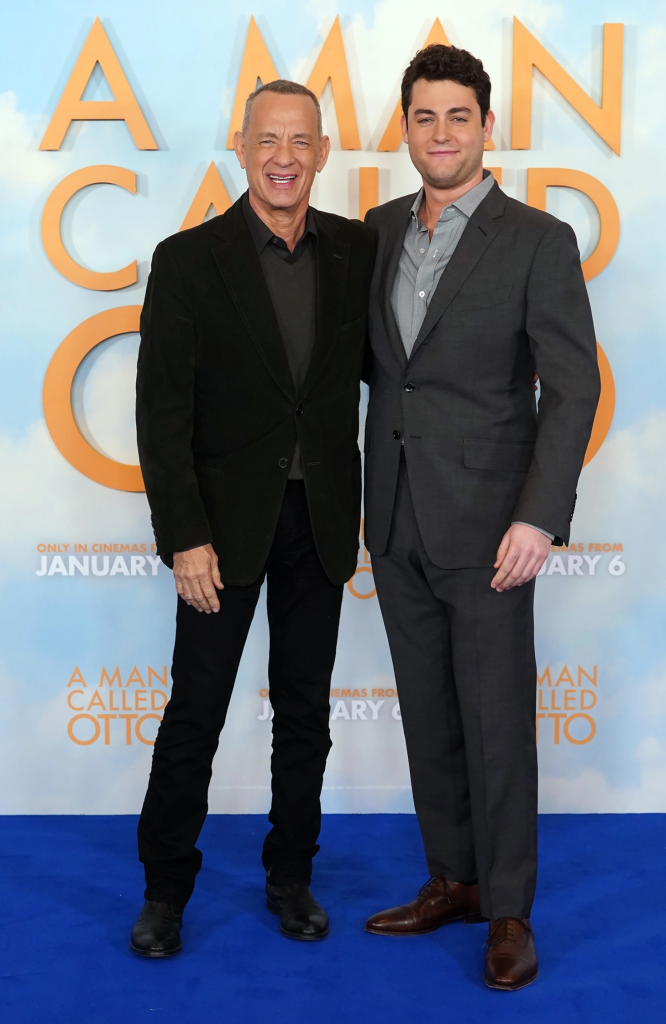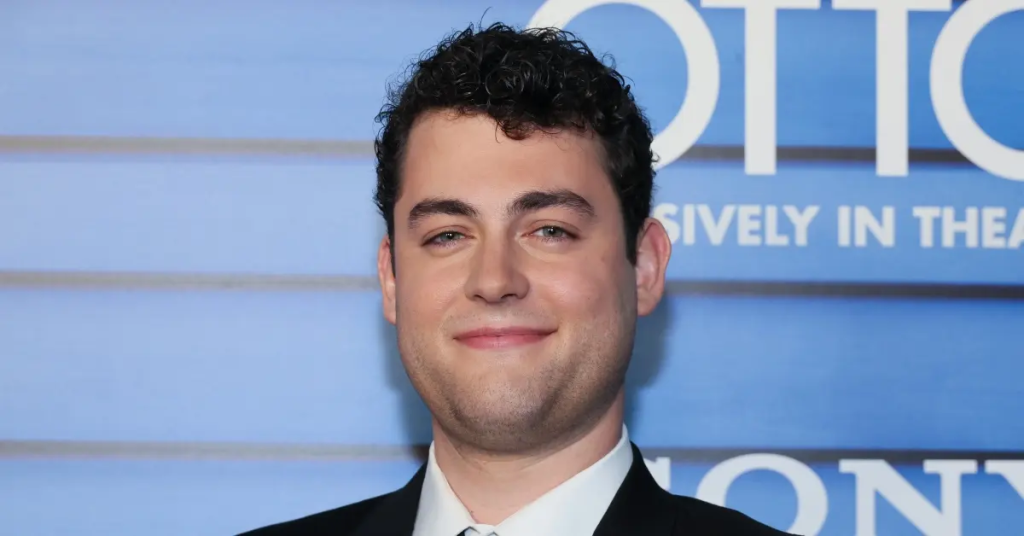In the competitive landscape of Hollywood’s behind-the-scenes talent, Truman Hanks has steadily built a reputation that extends beyond his famous surname. Born on December 26, 1995, in Los Angeles, California, Truman Hanks has forged his path in filmmaking primarily through camera work and cinematography, establishing himself as a dedicated professional in his own right by 2025. As the youngest son of legendary actor Tom Hanks and accomplished actress Rita Wilson, Truman chose a different route in the entertainment industry, focusing on the technical aspects of filmmaking rather than following directly in his parents’ acting footsteps.
Behind the Camera: The Technical Evolution of Truman Hanks

Truman Hanks’ career trajectory reflects a deliberate choice to master the craft of cinematography and camera work, beginning with humble positions and gradually taking on more significant responsibilities. After graduating from Stanford University in 2018, he began his professional journey as a camera trainee for the acclaimed German series “Babylon Berlin,” marking his first foray into the production side of the entertainment industry.
The progression of his technical roles shows a commitment to learning the craft from the ground up. Starting as a camera utility on productions like “News of the World” in 2020, Truman advanced to positions such as digital utility for “Black Widow” and “Wrath of Man” in 2021. His work as a director of photography assistant for Steven Spielberg’s adaptation of “West Side Story” further cemented his credentials in the industry.
By 2023, his expertise had grown substantially, earning him roles as a film loader on Wes Anderson’s “Asteroid City” and as a camera loader for the final season of HBO’s critically acclaimed series “Succession.” This steady progression demonstrates Truman’s dedication to mastering the technical aspects of filmmaking before taking on more senior positions.
Emerging from the Shadow: Carving a Unique Identity in Hollywood

For someone born into Hollywood royalty, the pressure to follow in parental footsteps can be overwhelming. However, Truman Hanks has methodically carved out his own niche in the industry, primarily working behind the camera while occasionally taking small acting roles in projects involving his father.
The Stanford Foundation
Truman’s education at Stanford University provided him with a solid foundation before entering the film industry. Unlike many children of celebrities who might leverage family connections to jump-start their careers, Truman’s approach has been more measured and education-focused, suggesting a desire to earn his positions through merit rather than nepotistic advantages.
Small Steps in Front of the Camera
While primarily focusing on camera work, Truman has made brief appearances in several films, including “News of the World” (2020), “A Man Called Otto” (2022), and “Asteroid City” (2023). These small acting roles, often in projects involving his father, have allowed him to experience both sides of filmmaking without relying on acting as his primary career path.
The Technical Craftsman: Analyzing Truman’s Contribution to Modern Cinema
What distinguishes Truman Hanks in his camera and cinematography work is his quiet dedication to technical precision across various genres and formats. His filmography reveals work on high-budget Marvel productions like “Black Widow,” critically acclaimed dramas like “News of the World,” and stylistic masterpieces like Wes Anderson’s “Asteroid City.”
The Digital Revolution Participant
Entering the industry during a time of significant technological transition, Truman has developed expertise in both traditional film techniques and cutting-edge digital technologies. His credits as a digital utility on multiple productions speak to his adaptability in an ever-evolving technical landscape.
Television and Streaming Experience
By 2025, Truman’s work has expanded beyond feature films to include prestigious television projects like “Succession” and the adaptation of “Fallout” for Amazon Prime Video. This versatility across mediums demonstrates his ability to apply his technical knowledge to different storytelling formats and production environments.
Recent Endeavors: Truman Hanks in 2025
As of 2025, Truman Hanks continues to build his impressive portfolio with increasingly significant roles in major productions. His current work on “The Phoenician Scheme” as a loader and “The Temptation of Loneliness” as first assistant camera shows his continued progression up the technical ladder in cinematography.
Moving Toward Cinematographer Status
The natural progression for someone with Truman’s experience typically leads toward becoming a full-fledged cinematographer, and his recent credits suggest movement in that direction. With each project, he has taken on roles with greater responsibility, building the necessary experience to eventually lead camera departments.
Independent and Short Film Contributions
Alongside work on major productions, Truman has devoted time to smaller independent projects and short films like “Raddoppiare: Parità,” where he served as Film Loader. This willingness to work on projects of varying scales and budgets indicates a passion for the craft itself rather than simply pursuing high-profile assignments.
The Hollywood Legacy: Navigating Fame as a Hanks

Being born into one of Hollywood’s most beloved families presents unique challenges and opportunities that inevitably shape a career trajectory. For Truman Hanks, managing the weight of the Hanks family legacy while establishing personal credibility has been a subtle balancing act.
The Quiet Professional Approach
Unlike some celebrity children who actively leverage family connections for publicity, Truman has maintained a relatively low public profile. His focus on technical roles rather than high-visibility positions suggests a deliberate strategy to establish credentials based on skill rather than name recognition.
The Mentor-Mentee Dynamic
Working occasionally on his father’s projects has likely provided Truman with valuable mentorship opportunities while learning the industry. This father-son professional relationship represents a different approach to navigating Hollywood dynasties—one built on learning the craft through proximity to excellence rather than simply inheriting status.
Technical Evolution: From Loader to Visual Storyteller

The progression from camera trainee to more specialized positions reflects the traditional path of learning in cinematography. Each role in the camera department requires specific skills and knowledge, building toward comprehensive mastery of visual storytelling.
Understanding the Camera Department Hierarchy
Truman’s journey through various camera department positions—from trainee to loader to assistant—demonstrates his willingness to learn the proper protocols and techniques at each level. This methodical progression is essential in a field where technical knowledge and practical experience are equally important.
The Digital Revolution Context
Having begun his career during a period of significant technological transition in filmmaking, Truman has developed expertise that bridges traditional film techniques with digital innovation. This timing has positioned him with valuable experience in both worlds as the industry continues to evolve.
Future Trajectories: What Lies Ahead for Truman Hanks

As 2025 unfolds, Truman Hanks stands at an interesting crossroads in his career. With nearly seven years of professional experience spanning various technical roles, the natural question becomes: what direction will his career take in the coming years?
The Path to Director of Photography
The traditional progression would see Truman moving toward becoming a director of photography, taking full creative responsibility for the visual elements of productions. His steady advancement through camera department ranks suggests this remains a likely destination.
Potential Expansion into Directing
Many cinematographers eventually transition to directing, leveraging their visual storytelling expertise to take on broader creative control. Given his exposure to outstanding directors through his work—including Steven Spielberg and Wes Anderson—Truman has had the opportunity to observe directorial approaches at the highest level.
Production Company Possibilities
Another potential avenue might involve collaboration with family members in production capacities. The Hanks family has been involved in various production ventures, potentially offering Truman opportunities to combine his technical expertise with family creative partnerships.
The Quieter Side of Hollywood: Analyzing Truman’s Approach to the Industry

In an era of social media prominence and personal branding, Truman Hanks represents a different approach to building a Hollywood career—one focused on craftsmanship over celebrity.
The Anti-Nepotism Strategy
By starting in entry-level positions and working his way through the ranks, Truman has constructed a career that can stand independent of his family name. This approach, while perhaps slower initially, builds credibility among peers and potentially creates more sustainable long-term prospects.
The Value of Technical Expertise
In focusing on cinematography rather than more visible roles, Truman has positioned himself in a field where objective skill and technical knowledge typically outweigh name recognition in determining career advancement. This choice reflects a strategic understanding of how to leverage his unique situation most effectively.
Conclusion: The Developing Legacy of a Visual Craftsman

As 2025 progresses, Truman Hanks continues to build a career defined more by technical expertise and quiet professionalism than by Hollywood glamour. His journey from Stanford graduate to experienced camera department professional demonstrates a deliberate approach to finding his place in an industry where his family name carries significant weight.
What makes Truman Hanks’ career particularly interesting is not just his famous lineage but the path he has chosen—one that prioritizes learning from the ground up rather than leveraging advantages for rapid advancement. In doing so, he represents a thoughtful approach to navigating the complex dynamics of Hollywood legacy and personal achievement.
As he continues to work on projects ranging from major studio productions to independent shorts, Truman Hanks is writing his own chapter in Hollywood’s technical history—one focused on the craft of visual storytelling rather than the spotlight of celebrity. Whether he eventually moves toward cinematography, directing, or other creative roles, his foundation in technical expertise provides a solid platform for whatever direction his career may take in the years ahead.

